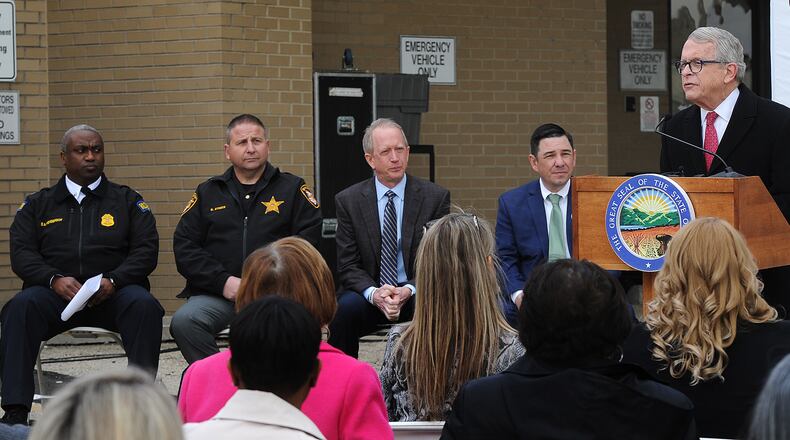The Montgomery County Crisis Receiving Center, located at 601 S. Edwin C. Moses Blvd. in Dayton, will be brought online by RI International, a mental and behavioral health services nonprofit, and Montgomery County Alcohol, Drug Addiction, and Mental Health Services (ADAMHS).
The nonprofit covered the cost of bringing the Elizabeth Place property online, and Montgomery County ADAMHS invested $2.3 million in federal, state and local dollars to fund the call center and the mobile crisis response teams, according to ADAMHS communications director Tina Rezash.
ADAMHS executive director Helen Jones-Kelley said the center will connect people to resources and care they need while also helping alleviate the duties of first responders.
“We are grateful that we had law enforcement for such a long time doing this work. They are our original first responders for the mental health crisis,” she said. “And now we’re bringing them some help so that they have the opportunity to bring people here to make phone calls and to get the services they need 24/7, 365.”
Streck said mental health incidents are among the top calls his office receives.
On average, the sheriff’s office receives between 120 to 160 calls concerning a mental health issue each week. These calls range from someone deputies can talk to and connect to resources to people who are hurting themselves or others.
Streck said it’s not uncommon for his deputies to respond to a call, pink slip them and have them released before their incident report is even finished. They end up responding to another call for that individual where they are ultimately taken to the Montgomery County Jail.
“When you have someone suffering a mental health crisis, it’s very labor intensive for deputies, corrections (officers),” said Streck. “Having a place like this hopefully will help with that.”
A few factors will contribute to when deputies take people to the crisis center: the availability of space at the crisis center, the nature of the person’s behavior, and whether or not the person is accused of a crime related to their call.
Adults with short-term crisis needs — such as therapeutic support or connection to other resources — can contact or walk into the center, where they’ll be greeted by a peer support employee.
From there, guests will also be offered other forms of care — food, a shower, and access to a washing machine and dryer — before sitting in one of the facility’s 16 reclining chairs, where they can rest and talk over next steps with nurses, psychology professionals, social workers and others.
The center is the final piece of a model that gives community members in crisis someone to call (the Montgomery County Crisis Now Hotline at 833-580-2255); someone to come to them (Mobile Crisis Response Teams) and somewhere to go (the crisis center).
“What we’re seeing today really does make Montgomery County a leader in the state and it really is one more major step forward to achieve what we want to achieve in Ohio,” said Ohio Gov. Mike DeWine, while visiting the facility Monday. “And that is to have a system… if your son or daughter or a family member is in crisis, there is a place for that person to go.”
About the Author



